
We all know that a strong immune system is one of the keys to good health. Yet is it possible that certain types of foods can improve immunity?
The immune system is made up of cells, organs, proteins, and tissues. Together, all of these parts perform bodily functions that ward off bacteria, viruses, and foreign bodies responsible for diseases.
Whenever the immune system encounters a pathogen, it performs an immune response that releases antibodies to the affected area. These antibodies attach to the pathogens and attempts to get rid of them.
Adding specific types of food to your diet could help enhance your immune system.
These are the following foods that could improve immunity.

If you’re wondering how foods can boost your immune system, you should give mushrooms a try. Mushrooms are rich in B vitamins such as niacin and riboflavin. It also is high in selenium, a mineral that is said to benefit immunity.
Combining these vitamins and minerals could help improve the immune system, allowing it to operate at optimal levels. Mushrooms are also rich in polysaccharides, which are molecules that could be beneficial to our immune response.
These fungi are known for their savoury taste and ability to enhance the flavours of various dishes. Here are some ways you can prepare mushrooms.
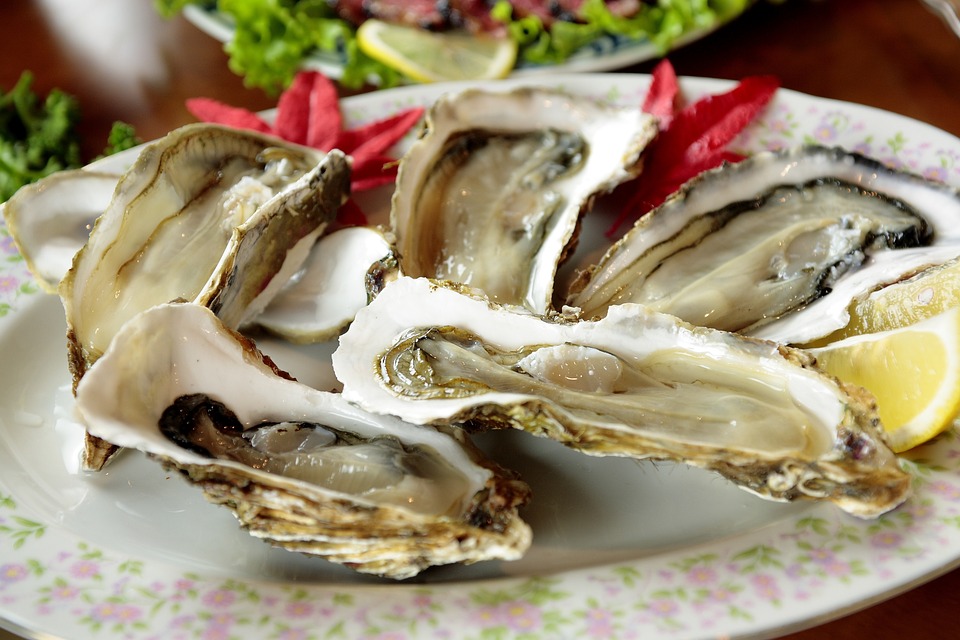
This kind of seafood is known as a highly nutritious snack from the sea. A single three-ounce serving of Pacific oysters can give a person selenium, iron, and vitamin C. This same oyster serving provides at least 16 grams of protein.
Vitamin A and zinc are also included when you eat oysters. These two are highly important for the immune system to function properly.
The most common way of consuming oysters is by eating them raw. However, there are several other ways these can be eaten.
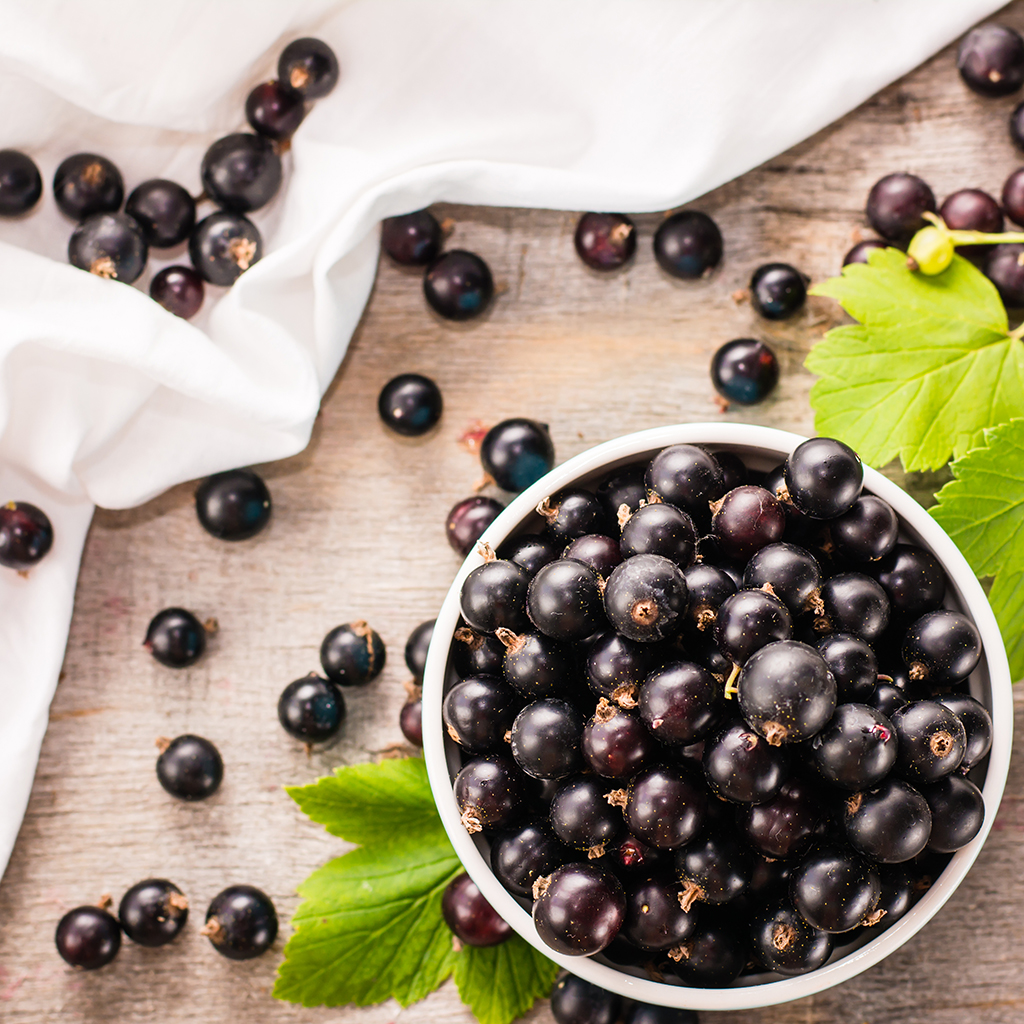
Acai berries are black-purple fruits that come from the acai palm trees. These trees can be found in Brazil, South America, and Trinidad.
The fruit contains anthocyanins, which are flavonoids that are potent antioxidants. These antioxidants eliminate oxidative stress within the body, getting rid of any free radicals that may cause harm.
Antioxidants are also known to improve the immune system while lowering bodily inflammation.
Due to the potential antioxidant properties of acai berry, researchers are continuing to learn more about it. Scientists are studying how they can use it for possible treatments of various health conditions.
Some areas of study for the acai berry are in:

Another fruit that is said to have immunity boosters is the watermelon. A single two-cup serving of this fruit is said to provide 270mg of potassium, around 30% of the daily requirement vitamin A, and 25% of daily vitamin C.
Calories should not be a problem with watermelon, since a two-cup serving only has about 80 calories. Watermelon is also known to provide glutathione and vitamin B6. These nutrients are needed by the body for optimal immunity.
Slices of watermelon are the most common approach to enjoy this type of fruit. However, you can also enjoy watermelon in various ways.

According to nutrition guidelines, adults should consume at least three servings of dairy products each day. Yogurt that is low in fat can give about 11 grams of protein, 400mg of calcium, and 250 calories.
Low-fat yogurt could also provide the daily vitamin B12, vitamin D, and vitamin B2 requirements of an individual. Having sufficient amounts of vitamin D and these other nutrients is essential for a robust immune system.
Furthermore, yogurt is high in probiotics, including Lactobacillus casei and Lactobacillus acidophilus. These bacterial strains are said to help improve immune function. They may also reduce the severity of colds.
Besides immune benefits, beneficial bacteria in the gut can also aid in detoxification and digestion.
Many people consume yogurt directly, yet there are also other ways to enjoy this type of food.
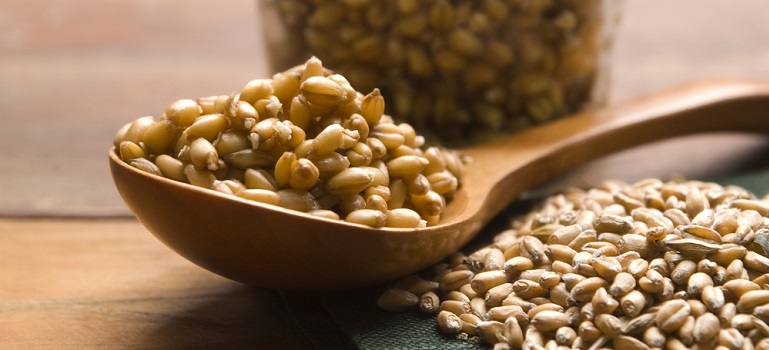
If you don’t know what wheat germ is, it is the innermost section within a wheat kernel. It is the part of the grain that contains the most nutrients. Wheat germ is high in zinc, B vitamins, and vitamin E.
It can be added on top of cereal or yogurt or mixed into a shake. Wheat germ is very easy to combine with other food for extra nutrition, especially in baked goods. You can substitute wheat germ with a little white flour to get some more minerals and vitamins in different recipes.

Tea is perhaps the most consumed beverage in the United Kingdom. The antioxidants present in tea known as flavonoids and polyphenols are known to improve the immune system. Such compounds may also reduce the risk of cardiovascular diseases.
When we drink tea, it affects the blood lipids by increasing the good cholesterol in the body. It also reduces the LDL, or the bad cholesterol, at the same time.
However, drinking tea is not the only way to consume this healthy concoction.

Spinach is considered to be a superfood because of its high levels of vitamin A, folate, vitamin C, magnesium, iron, and fibre. Nutrients in spinach, particularly vitamin A, can boost immune function while providing the body with the capability for DNA repair and cell division.
Health experts recommend consuming raw or lightly cooked spinach to preserve most of its nutrients.
Most individuals know that spinach is great as a salad, but how else can it be prepared? There are actually a lot of ways one can enjoy this leafy vegetable.

Another powerhouse vegetable that supports the immune system is broccoli. A cup of this vegetable can give vitamin C equivalent to that of an orange.
Broccolis are also rich in potassium, zinc, beta-carotene, iron, and magnesium. It can supply a wide range of B vitamins, such as B1, B2, and B3.
Consuming these minerals and vitamins together is beneficial to the immune system to operate in its best form. Another compound that can be acquired from broccoli is glutathione, which is a great antioxidant.
Being a very nutritious vegetable, you should start adding broccoli to your diet. It can be prepared in several ways.
 Sweet potatoes provide its consumer with vitamin A and vitamin C while giving only just 100 calories for every medium-sized serving. Both vitamins are necessary for enhanced immune function and they are also beneficial to the skin.
Sweet potatoes provide its consumer with vitamin A and vitamin C while giving only just 100 calories for every medium-sized serving. Both vitamins are necessary for enhanced immune function and they are also beneficial to the skin.
Since sweet potatoes are cholesterol-free and low in fat, people can consume them for their benefits without the added guilt. Sweet potatoes also provide the consumer with a healthy amount of fibre.
The rich colour of sweet potatoes goes to show that it is rich in vitamin A. Its bright and orange roots can be mixed into recipes in various ways.
It can be made as:
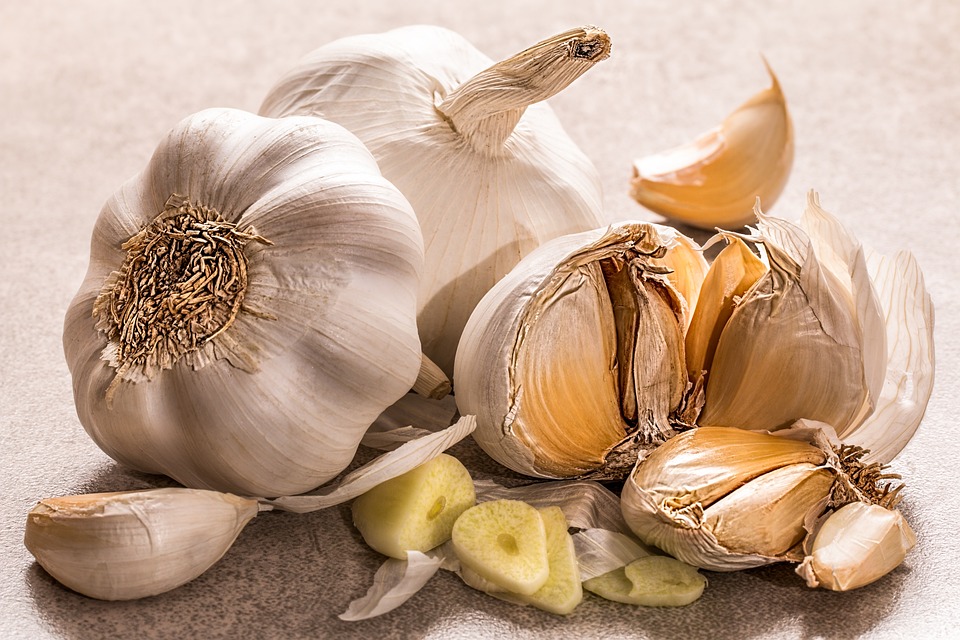
Garlic has been a popular remedy when it comes to improving the immune system. Its cloves have been known for their antiviral, antibacterial, and even antifungal properties.
Garlic bulbs have high antioxidant content that can eliminate free radicals responsible for heart diseases, Alzheimer’s disease, cancers, and other medical conditions. Its antiviral properties could reduce the severity of flu, colds, and maybe even COVID-19 symptoms.
In a 2014 study, subjects who consumed garlic were observed to have shorter durations of experiencing colds compared to those who took placebo pills. Garlic may be used to ease the symptoms of flu and colds alike.
Garlic is also known to improve the part of the immune system responsible for fighting cancer and viruses. Quite a few studies have associated garlic use with lower rates of different kinds of cancers.
In one study, people who consumed garlic could be less prone to experiencing colorectal cancers.
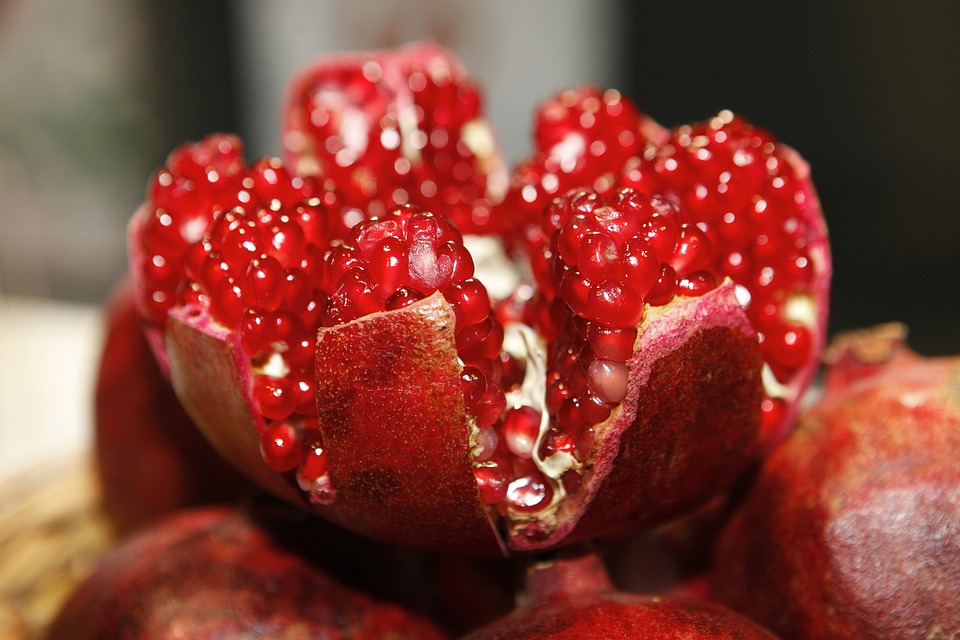
Pomegranates, particularly its extract, has been found to reduce the growth of harmful bacteria. The reason for this is the compounds that can be obtained from the fruit.
There are also studies showing that the compounds in pomegranate extract can minimise the growth of bacteria in the mount that causes plaque build-up, periodontal diseases, and gingivitis. The extract is also said to have antiviral properties that could combat herpes, flu, and other viruses.
The majority of people who consumed pomegranate enjoy eating its seeds directly after opening the fruit. However, it can also be consumed in a few more ways.
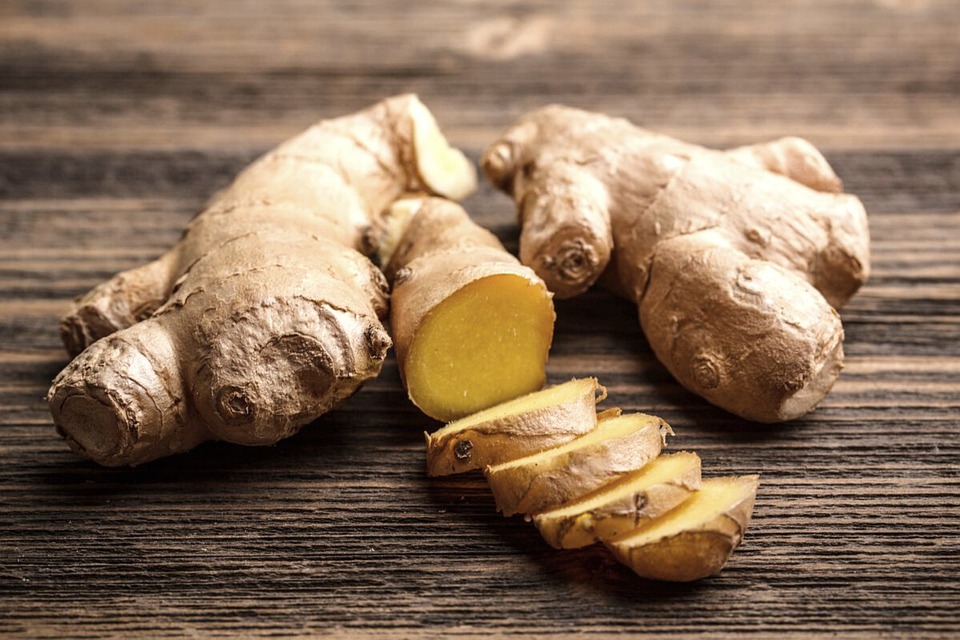
This anti-inflammatory root is said to have numerous antioxidant compounds that can boost your immune system. Standard metabolic processes of the body, toxins, and infections all add up to the production of free radicals that cause oxidative stress.
With antioxidants present, these molecules get rid of free radicals and assist in fighting against conditions such as cancer, arthritis, and neurodegenerative disorders.
Ginger tea is a common way of consuming the root. Grated ginger can also be added to stir-fried vegetables with or without rice.
There are also other ways you can consume ginger today.
The following are additional foods that you can add to your diet for better immune function.

Dark chocolate is believed to help boost your immune system. It contains theobromine, which scientists have found could improve one’s immunity by defending the body from free radicals.
These free radicals are the molecules produced by the body whenever it encounters pollutants or breaks down food. They are capable of damaging the cells of the body and may even cause disease.
Although it may have possible benefits, dark chocolate is still high in saturated fat and calories. People are advised to eat it in moderation.

This yellow spice has been used for centuries in cooking various dishes. Turmeric is also present in alternative and natural medicine.
Health experts believe that consuming turmeric is capable of improving an individual’s immune response. This may be due to the presence of curcumin, a healthy compound in turmeric.
In a 2017 review, curcumin is said to have anti-inflammatory and antioxidant properties that are responsible for its health benefits.

Blueberries contain anthocyanin, a kind of flavonoid that has antioxidant properties. These properties are capable of helping improve the immune system.
In one study, researchers stated that flavonoids play a crucial role in protecting the respiratory tract against infections. They learned that individuals who ate foods that are high in flavonoids had less chances of acquiring upper respiratory tract infection compared to those who did not.

This fermented drink contains live cultures of healthy bacteria. Initial studies suggest that consuming kefir could help with the immune system.
A 2017 review analysed several studies showing that kefir can help fight bacteria, reduce inflammation, and increase antioxidant activity in the body.
However, most of the research on kefir were performed on animals. Clinical trials on humans need to be made to understand and confirm the potential health benefits of this drink.

Sunflower seeds can make for a nutritious addition for breakfast bowls or salads. These seeds are a high source of vitamin E, which is an essential antioxidant for the body.
Similar to other antioxidants, vitamin E has been found to improve immunity. The vitamin works by suppressing free radicals responsible for causing damage to healthy cells.
The foods that are listed in this article may or may not improve the immune system. Some of them have been studied by experts and have shown properties that could be beneficial to immune response.
However, not all of them have been proven to be effective in human subjects. Eating a healthy and balanced diet may be one way to support immune health but do keep in mind that the immune system is complex. That is why you should take the advice provided in this content with a grain of salt.
You should also be mindful of other factors that could affect the immune system. One’s lifestyle is a major factor. Smoking, drinking too much alcohol, and plain abusing the body does not help. Supporting your immune system with supplements with natural ingredients will also contribute towards increased immune function.
People who are experiencing colds or other flu-like conditions should consult a doctor for expert medical advice.
Despite the benefits we’ve learned about protein powders, not all of them are keto-friendly. Just like any product for people on a low-carb diet, you need to read the label closely to make sure you’re not consuming added carbs and sugars.
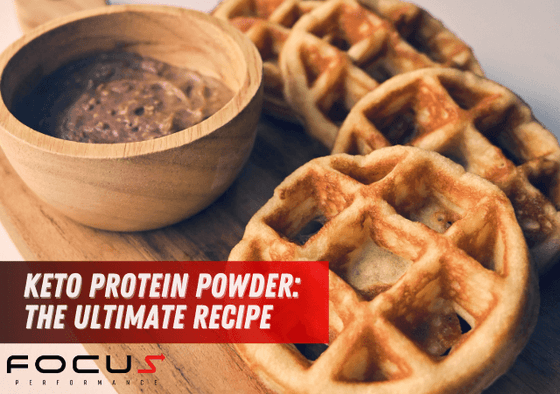
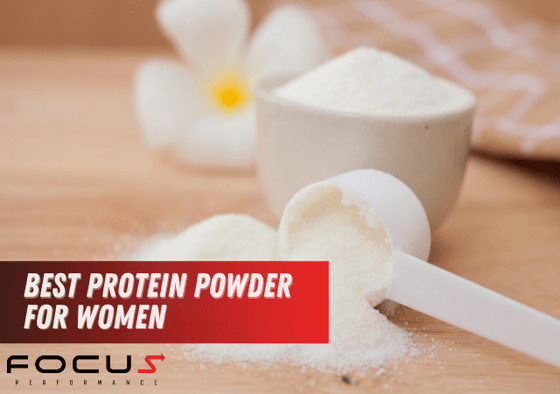
Scott Reid
Author
Scott Reid is a 2 x Britain’s Strongest Man U105kg winner (2007 & 2008) and IFSA World's Strongest Man U105kg Competitor. He is an expert in strength and conditioning and also coaches functional nutrition. Scott’s passion for understanding the human body and how to optimise every aspect of it has driven him to study under legends such as Paul Chek. Scott now coaches MMA Athletes, Strongmen and Bodybuilders to name but a few, helping them to implement a well structured diet and become more powerful, explosive versions of themselves.